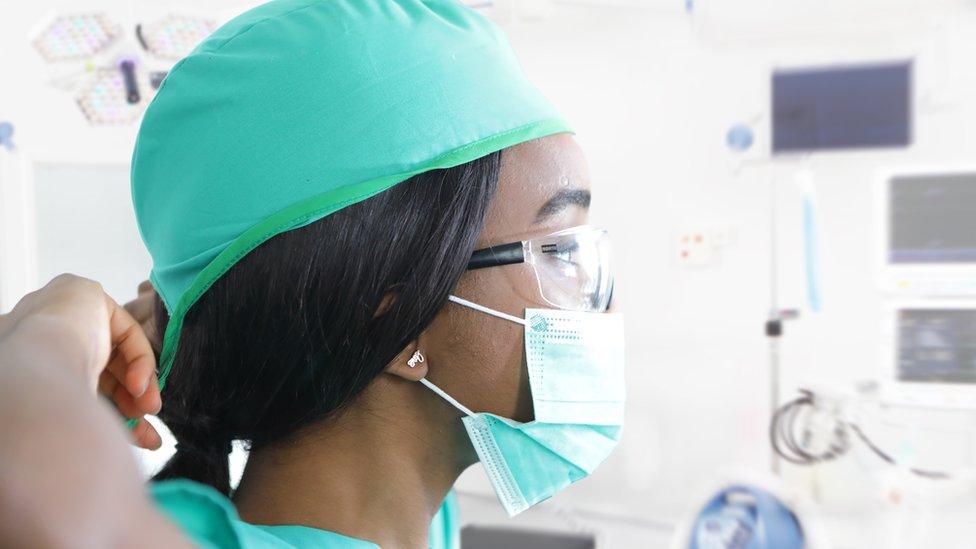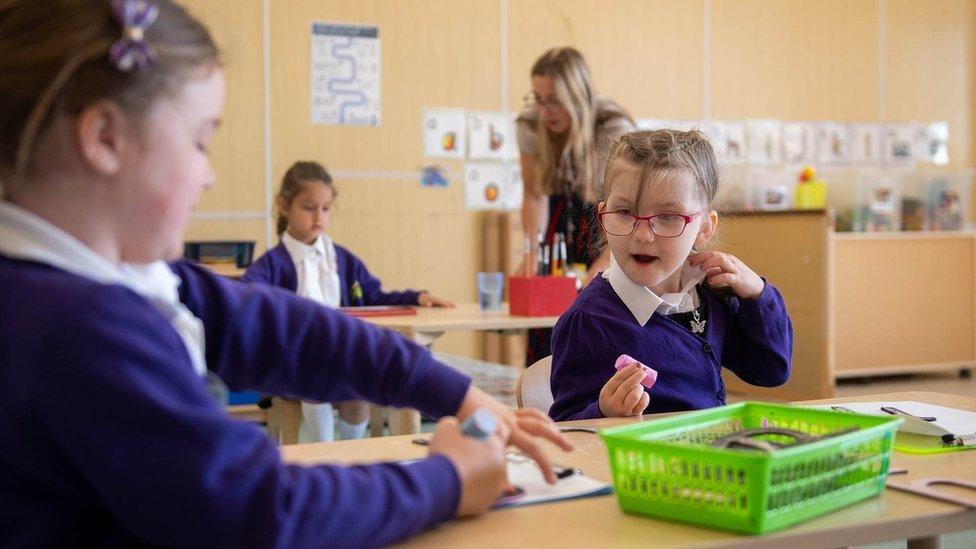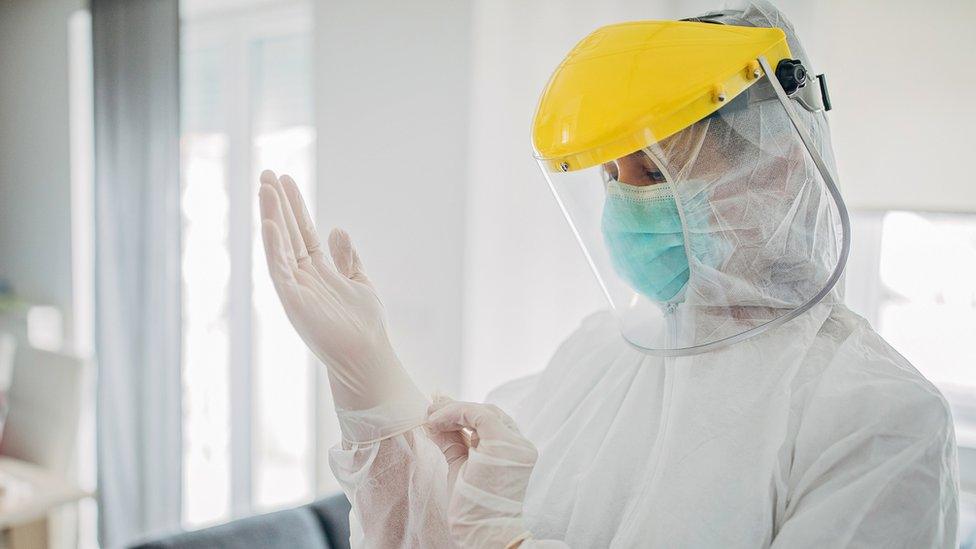Coronavirus: NHS faces pandemic 'triple whammy' this winter
- Published
- comments

The NHS is facing a "triple whammy" of rising Covid-19 cases, a major backlog in treatment and reduced capacity due to infection-control measures, according to health bosses.
The NHS Confederation report on the English NHS said more investment was desperately needed.
The NHS bosses also called on ministers to be "honest and realistic" about waiting lists for treatment.
It comes despite the government promising an extra £3bn this winter.
That money - announced over the summer - was intended to:
help hospitals cope with the extra-infection control measures required
pay for patients to be treated privately for routine treatment, such as knee and hip replacements
But hospitals are still performing only half the number of routine operations they normally would.
Two million patients have already waited longer than 18 weeks for treatment, the highest number since records began, in 2007.
And services in other areas, such as cancer care, are running at about three-quarters capacity.
Of the more than 250 bosses who responded to the confederation's survey:
fewer than one in 10 said the current level of funding allowed them to deliver safe and effective care
nearly nine in 10 said a lack of funding would be a significant barrier to achieving waiting-time targets for everything from mental-health care to cancer treatment and routine operations

SOCIAL DISTANCING: What are the rules now?
SUPPORT BUBBLES: What are they and who can be in yours?
FACE MASKS: When do I need to wear one?
TESTING: What tests are available?

NHS Confederation chief executive Danny Mortimer said a sustainable plan had to be found for the NHS.
"No-one can be in any doubt that the road to recovery for the NHS and social-care services will be long," he said.
"Despite dire predictions that it would not be able to cope, the NHS has not only managed a huge wave of Covid patients but also continued to treat millions not infected with the virus.
"We have learned much and are in a better position to manage the virus than first time round, despite still not having an effective test-and-trace system."
Dame Donna Kinnair, of the Royal College of Nursing, called the report "deeply concerning".
A "serious shortage" of nursing staff was putting a strain on services and the people who worked in them, she added.
- Published9 June 2020

- Published9 June 2020

- Published9 June 2020

- Published15 May 2020
